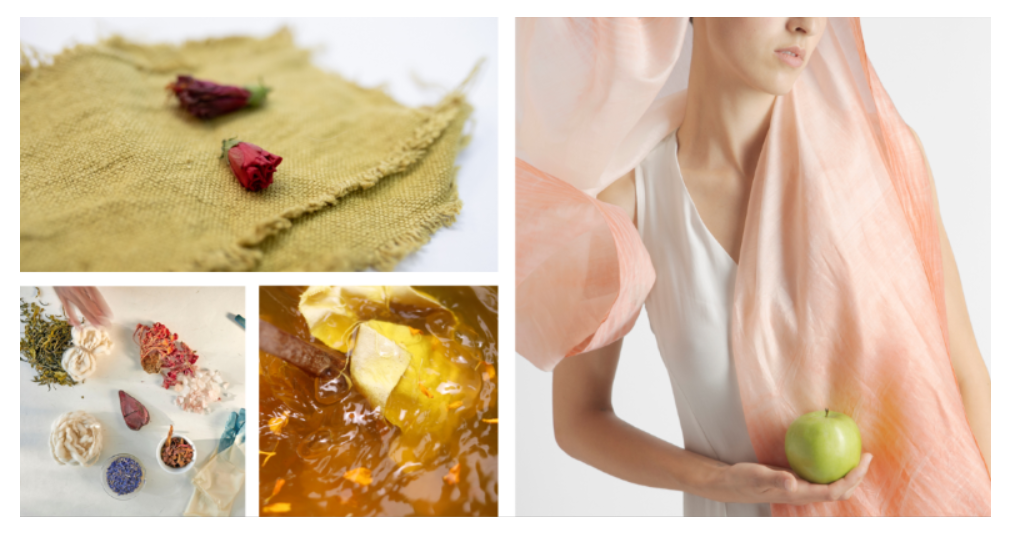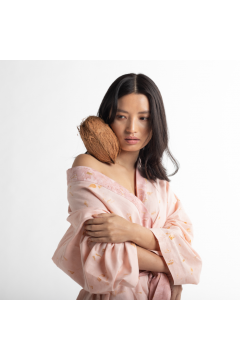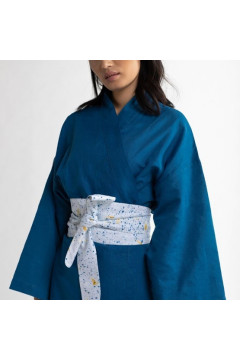- Pop up store in Paris
- About us
- Ethics
- Manifesto
- A Word from the Founders
- Press
- Clothing +
- Shoes +
-
Accessories
- Handbags
- Small leather goods
- Belts
- Scarves
- Hats / Hair Accessories
- Sunglasses
- Umbrellas and Parasols
- Lingerie +
- Jewelry +
- Beachwear
-
All brands
- 9 A.M. IN PARIS
- ACQUA BAZAAR
- ADT
- BALADINE JOAILLERIE
- BONAME
- CELINE ROBERT
- CHA'SKA
- CINEMAILLES
- GUIV
- LALIDE A PARIS
- LE PARAPLUITIER
- LOUISE DAGORNE
- MAISON BAUM
- MAISON JOHANNA BRAITBART
- MAISON LOUVE
- MARION WATERKEYN
- MYMIMU
- NEGE PARIS
- NIMBOO
- PAOLI MADE IN ITALY
- PETRUSSE
- PHI 1.618
- SWEET MELLOW
- Made-to-order
- Exceptional craftsmanship
- Upcycling
- Vegan
- Local production
![]()
NIMBOO, re-sourced softness
Nimboo is an unexpected universe, a call to travel where design meets passion, craftsmanship transforms what has been thrown away, the local meets the world and the art of natural dyeing blends with hand-woven textiles.
In the temples of coastal India, spring flowers such as roses, marigolds and hibiscus are sprinkled on altars to be venerated and then thrown into the waterways. These flowers which are destined for the gods find new life thanks to the skilful hands of Indian craftswomen.
Nimboo restores beauty in these flowers that are thrown away, a modern philosophy of life that places nature at its heart. The essence of these flowers is printed on the linen and clothing designed by Nimboo.
In this spirit, Saurabh Mahajan Devanlay, founder of Nimboo (lemon in Sanskrit), creates timeless clothes in harmony with nature, far from global fashion trends. Clothes that are gentle for your skin, and gentle for the planet, designed in a manner that recycles Beauty.
At the heart of this approach is also the support of local artisan communities, often women who have no other means of subsistence. Sasha, a fair trade organisation based in Kolkata, West Bengal, is working with Nimboo to strengthen, support and expand market opportunities for women in the community. Sasha supports more than 100 groups of disadvantaged women and marginalised producers in rural and semi-urban areas of North East India. Women weave, another ethical organisation based in Maheshwar, Madhya Pradesh, is committed to poverty reduction for over 100 women in central India. Another partner of the brand employs people with disabilities, equipping them with a variety of skills to give them employment, but above all skills of confidence and dignity.
All Nimboo clothing is designed and prototyped in Paris. Because Indian know-how in weaving and natural dyes based on flowers of the temples is unique and impossible to export, the garments are then made in limited series in India, by women who find a livelihood and a form of recognition and social integration there.

There are 17 products.

















